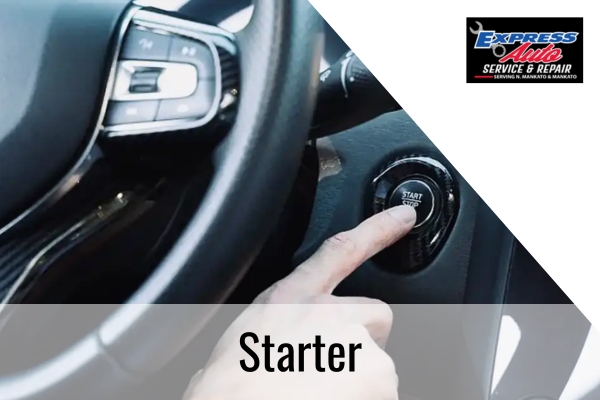The main cause of starter failure is often internal wear within the starter motor. Over time, internal parts like the brushes, solenoid, or armature may degrade due to continuous use. When these parts begin to break down, the motor may no longer engage or spin the engine effectively.
But what is the most common cause of starter failure in a broader sense? While mechanical wear is high on the list, many failures also result from overlooked electrical issues.
Other common causes of starter failure include:
- Dead or weak battery: Without enough voltage, the starter won’t have the power it needs to crank the engine.
- Corroded or loose battery terminals: These disrupt current flow to the starter, making it seem like the motor is dead when it’s not.
- Faulty ignition switch: If the switch fails to send power to the starter solenoid, nothing will happen when you turn the key.
- Bad starter solenoid: A failing solenoid may not engage the gear properly or deliver current to the motor.
- Blown a fuse or damaged wiring: A broken connection or blown fuse in the starting circuit can prevent the starter from receiving any power.
- Seized engine or locked flywheel: Mechanical resistance from the engine itself can make the starter appear faulty.
Tip: If your vehicle clicks but won’t start, start by checking your battery and cables. Also, remember that failing alternators can mimic starter issues by leaving your battery undercharged. In some cases, bad alternators may even lead to repeat starter failures by draining the battery over time.
Wondering what is the most common cause of starter failure? Contact our ASE-certified technicians at Express Auto Service & Repair for more information about alternators and to schedule an appointment. Our auto shop serves vehicle owners in Mankato, MN, and the neighboring communities of North Mankato, MN, New Ulm, MN, and St. Peter, MN.

The main cause of starter failure is often internal wear within the starter motor. Over time, internal parts like the brushes, solenoid, or armature may degrade due to continuous use. When these parts begin to break down, the motor may no longer engage or spin the engine effectively.
But what is the most common cause of starter failure in a broader sense? While mechanical wear is high on the list, many failures also result from overlooked electrical issues.
Other common causes of starter failure include:
- Dead or weak battery: Without enough voltage, the starter won’t have the power it needs to crank the engine.
- Corroded or loose battery terminals: These disrupt current flow to the starter, making it seem like the motor is dead when it’s not.
- Faulty ignition switch: If the switch fails to send power to the starter solenoid, nothing will happen when you turn the key.
- Bad starter solenoid: A failing solenoid may not engage the gear properly or deliver current to the motor.
- Blown a fuse or damaged wiring: A broken connection or blown fuse in the starting circuit can prevent the starter from receiving any power.
- Seized engine or locked flywheel: Mechanical resistance from the engine itself can make the starter appear faulty.
Tip: If your vehicle clicks but won’t start, start by checking your battery and cables. Also, remember that failing alternators can mimic starter issues by leaving your battery undercharged. In some cases, bad alternators may even lead to repeat starter failures by draining the battery over time.
Wondering what is the most common cause of starter failure? Contact our ASE-certified technicians at Express Auto Service & Repair for more information about alternators and to schedule an appointment. Our auto shop serves vehicle owners in Mankato, MN, and the neighboring communities of North Mankato, MN, New Ulm, MN, and St. Peter, MN.


